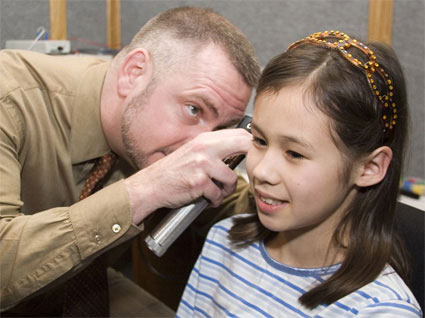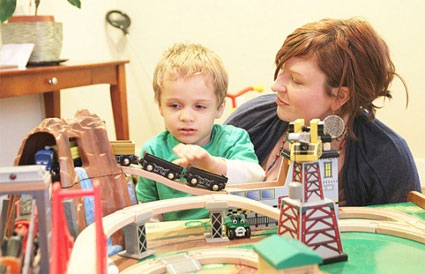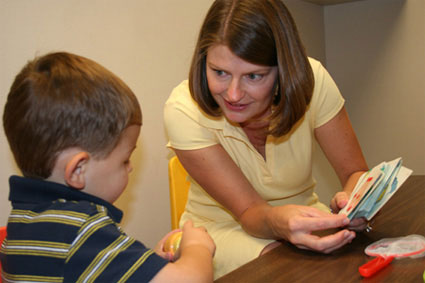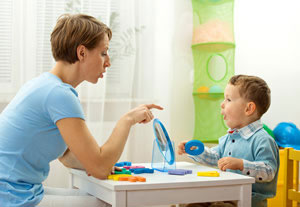Development of speech and hearing are two sides of the same coin. For proper speech development, proper hearing is a prerequisite. A speech pathologist evaluates the reason for communication disorder. He may refer to an audiologist for a complete evaluation of hearing mechanism for a comprehensive diagnosis. Treating hearing problems in the initial stages will also help in proper development of speech. An audiologist with the help of tests will be able to find out the reasons for problem in hearing. The treatment plan depends on the test results.A proper hearing is a prerequisite to normal life. It is important that you get to hear what is going on around you and it is equally important that people get to hear what you are saying. Once you discover that there is a hitch in this process you know that it is time to visit an audiologist.
Hearing and communication problems are mostly found in babies. Kids too can show a hearing problem but most observant parents are likely to notice the problem at an early stage. This makes treatment much easier and readily effective. This does not mean that if the problem is discovered or surfaces at a later stage they cannot be treated. Treatment is often through therapies occasionally combined with medication and they are effective with every patient.
Who is an Audiologist and When Should you Visit Him?
An audiologist is a specialized professional who can understand the manner in which the hearing mechanism works in our body, and is trained to find the actual cause when there is a lapse in the process. He is equipped to help the patient by suggesting effective methods that will help him hear normally.
When you find your kid becoming unresponsive and not hearing properly, you should investigate the reason behind it and seek the help of the audiologist. It is often found that the baby is finding it difficult to hear due to as simple as a reason as accumulation of wax in is ears. The wax should be cleared by a doctor in a clinical setting.
But hearing problems might be very complex as well. The human ear functions through the coordination of several parts and a major chunk of it is actually inside the head. The complexity of a hearing problem increases as it is difficult to directly reach the inner parts of the ear and most importantly of the innermost part that is connected to the brain is the epicenter of the problem, the condition is indeed a cause of concern.
An audiologist is perfectly equipped to figure out the real reason behind the hearing problem and prepares a report and a treatment chart accordingly.
What Happens When you Visit an Audiologist?
Otoscope
One of the most primary tests that the audiologist will do in you is the Otoscope. Here, the audiologist uses a device or a tool that helps him get a clear view inside your ear. Since it is dark in the inner part, the tool has a minute but strong light emitting torch attached to it. In order to get a thorough view inside you might feel the audiologist pulling the ear from different angles while he is conducting the test. This is the basic way to determine the cause of the hearing problem.
Tympanometry According to the requirement, he then goes for a second test – Tympanometry. This indicates the movement of the eardrums. It helps the audiologist to find out if there is any abnormality in the usual back and forth vibration of the ear drum. In a hearing problem, it is often found that due to accumulation of fluid behind the ear drums the movement is not as it should be and the presence of the fluid can also cause pain in the ear. Then measures are taken to remove the fluid and the hearing is restored to normalcy.
Other Tests Apart from these there are a host of other tests that are conducted to find the cause of hearing problem and treat it accordingly. A pure tone test is conducted in specialized sound-free booths to determine which specific tones and volumes are causing problems in hearing.
After the completion of the tests, an audiogram is charted which explains your hearing faculty in detail. Apart from the regular therapies hearing aids might be suggested to normalize hearing in the patients by the audiologist.
































